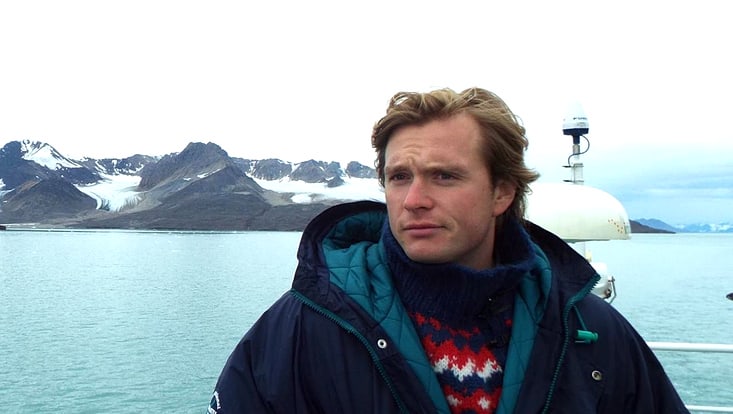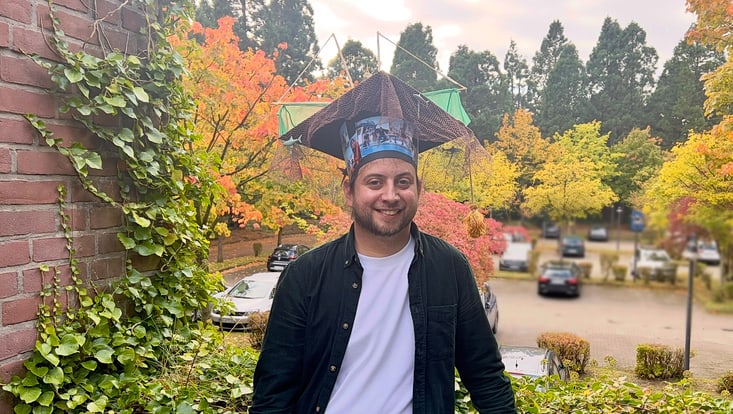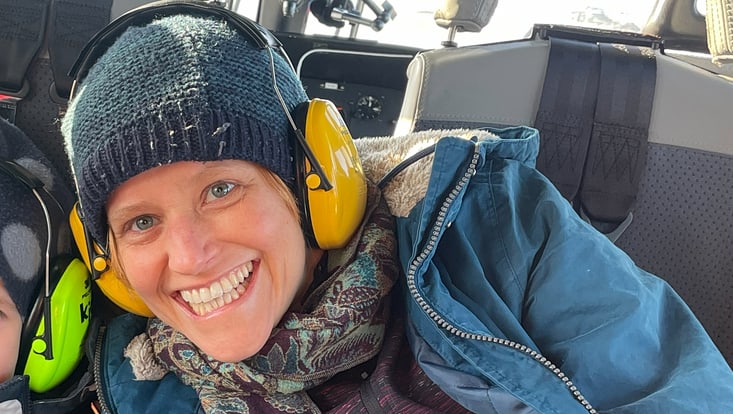RTG2530-Short PortraitsWelcome to the team, Flemming Dahlke!
27 May 2025, by RTG 2530

Photo: UHH/RTG2530/Dahlke
The second four-and-a-half-year funding phase of the RTG2530 began on 1 April, and with it, we are pleased to welcome new and familiar faces in new roles. In our RTG 2530 short portrait series, we would like to introduce our new members briefly. We begin with Flemming Dahlke, who has joined the RTG2530 team as a principal investigator. We asked him three questions in an interview.
1. What is the main focus of your research, and what are the overarching topics, questions or objectives?
My research mainly focuses on how marine organisms – especially fish – respond to changing environmental conditions such as rising temperatures or oxygen depletion. A central aspect of my work is to investigate which phases in the life cycle of marine species are particularly sensitive to environmental changes. I am keenly interested in developmental and reproductive biology, as it is during the early life stages – such as the larval stage – and during reproduction that critical conditions are set for the long-term survival and adaptability of populations. Within the Research Training Group 2530, I am particularly interested in exploring how these physiological responses affect interactions between different organisms in food chains and the consequences this has for the carbon cycle in estuaries and coastal waters.
2. What made you decide in favour of this field of research? What fascinates you about it, and what do you see as the biggest challenge?
My interest in this field of research arose from the realisation that fundamental physiological processes at the level of individual organisms can have direct consequences for entire ecosystems and even for global biogeochemical cycles. I am particularly fascinated by how individual processes such as respiration, metabolism, or reproduction within organisms can result in far-reaching ecological consequences. What excites me most is the connection between small, experimentally measurable biological processes and the global ecological changes they can cause. In my view, the most significant challenge lies in capturing and understanding these biological mechanisms with such precision that robust and realistic predictions about the impacts of climate change on ecosystems can be derived from them.
3. What are your expectations of the collaboration in the Research Training Group 2530, and is there anything you are particularly looking forward to?
In the Research Training Group 2530, I am especially looking forward to interdisciplinary collaboration with colleagues and early-career researchers across various research fields, ranging from microbiology and animal physiology to approaches in biogeochemical modelling. I hope this intensive exchange will provide new perspectives and impulses for studying biological interactions and their significance for the carbon balance in rivers and oceans. I am also excited about working with the doctoral students to jointly develop new scientific questions, pursue methodologically innovative approaches, and thereby contribute to a deeper understanding and better protection of our environment.


